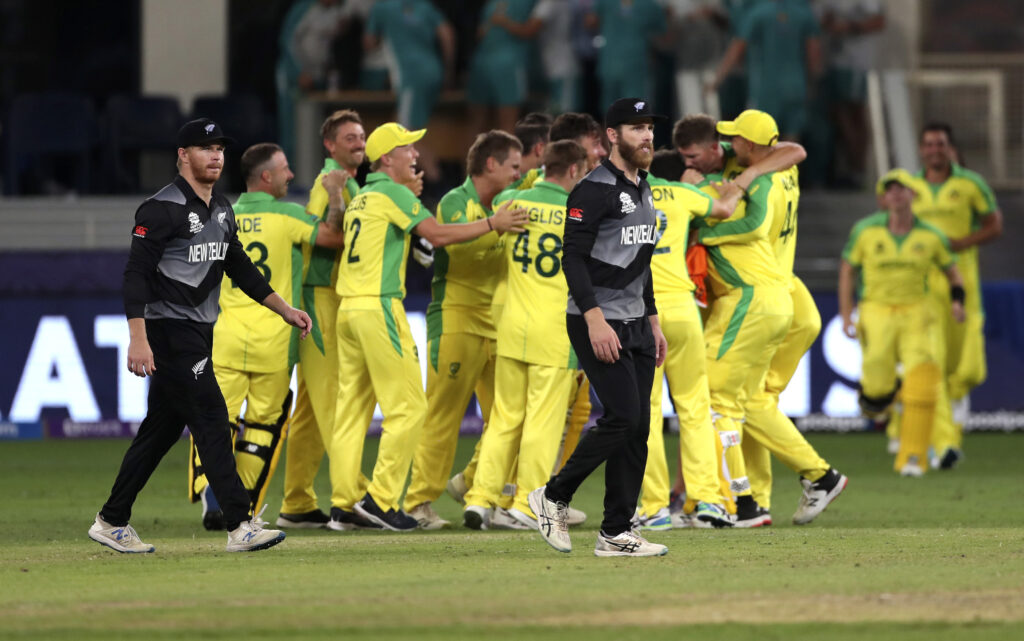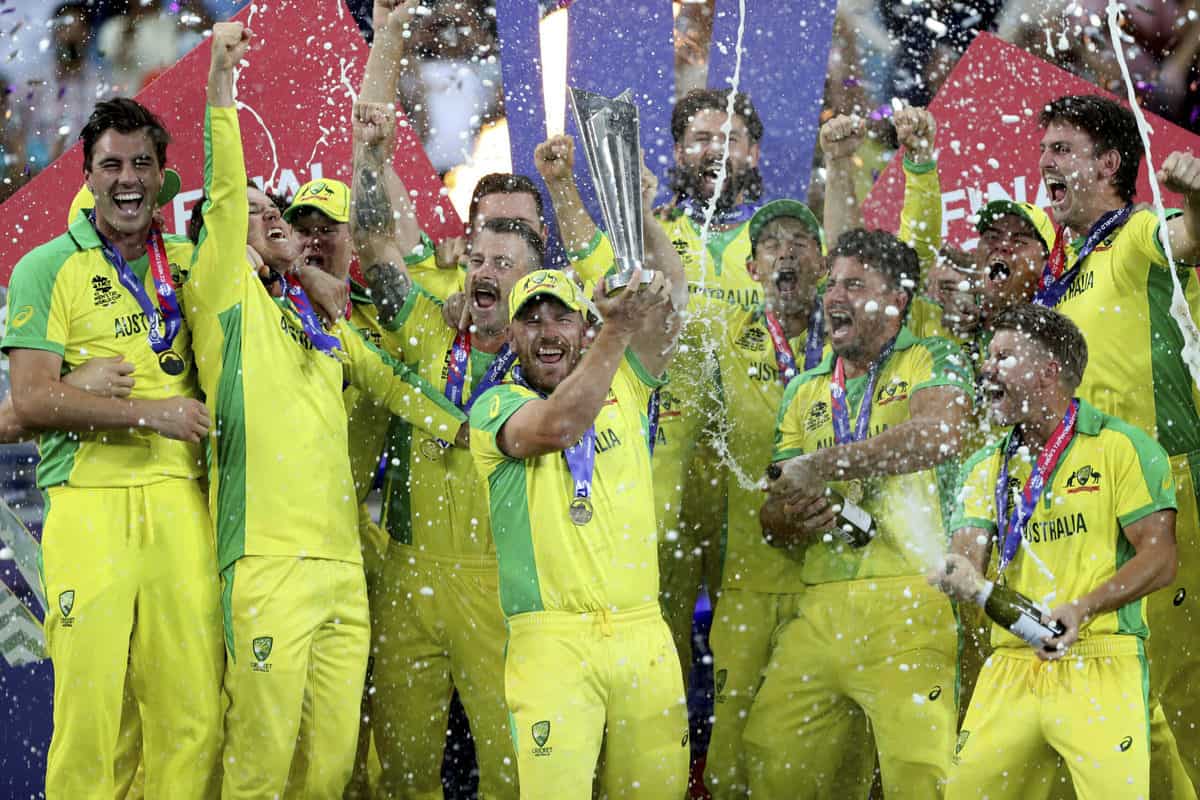By chalking up a decisive eight wicket victory over New Zealand in the ICC T20 World Cup final, Australia once again showed the whole world that it is a nation of cricket champions. Whatever may be the type of cricket being played, the Aussies are the team that all others must take with utmost seriousness. Moreover this island nation has dominated cricket for such a long period of time that one can only marvel at the determination and dedication of the players that it has produced so consistently.
Australia is the most successful team in Test cricket with a win percentage of 47.35. As of January 2021, Australia had played 834 Test matches which is the second highest number of Tests after England which played 1028. As far as the ODI format is concerned, Australia is the most successful World Cup team with 5 victories under its belt. And now it has got a T20 ICC World Cup victory as well.
So what makes the Australians such a super power? Is it their culture, or inborn talent or a well organised sports system? It is actually a combination of all these factors. Australian culture lays primary emphasis on outdoor activity. It leads to all children taking up some sport or the other. Many Aussie cricketers also excel at hockey or Australian rules football as well as cricket.

Then there is a well managed system which encourages merit without interference. Any youth who takes up sport develops the right attitude and approach. He or she knows that only merit and hard work will take their career forward. The system breeds confidence and combativeness.
It is no wonder that Australia also has rugby and hockey teams which are among the best in the world. It has produced grand slam tennis champions such as Rod Laver, Ken Rosewall, John Newcombe, Pat Cash and Margaret Court and Ash Barty. And at the Tokyo Olympics, Australia bagged 46 medals (including 17 gold). A marvelous record indeed considering that the population of Australia is only 25.89 million.
In India, with about 1.38 billion people, we are satisfied that we won seven medals at the Tokyo Olympics. In cricket which is our main sport, we have failed to display any consistency in ICC tournaments. Our sports system is riddled with nepotism and infighting. Our sports officials are self serving and selfish. In fact it is a known fact that Indian players have to overcome a double hurdle. The first hurdle is created right here in India itself, arising out of favouritism and politics and the second hurdle is faced abroad against foreign rivals.
There is a lot that India can learn from Australia about the right methods to produce champions and win sports trophies.
Unlike the West Indies which has faded away after enjoying a golden period, Australia continues to maintain a very high standard. It is another issue that Aussie players have come in for a lot of criticism because of their excessive sledging. Even the ball tampering incident of 2018 was a disgraceful act without any doubt. But when it comes to overcoming opponents on the field or mental pressure, or having to put in commitment and passion, there is no one to match the Aussies and their fighting spirit.
Ever since Test cricket began, there has never been a period when Australia could be taken lightly. In March, 1877, a combined Australian XI defeated an England team by 45 runs in what came to be known officially as the first ever Test cricket match. In the decades that followed, many great names emerged from Australian soil which became household names throughout the world.
Among them were Victor Trumper who was considered to be a batting genius, the outstanding Clem Hill, Warwick Armstrong who was one of the best captains of his time and the 6 feet 4 inches tall Hugh Trumble who created the then world record of 141 Test wickets.
Later came the great Don Bradman whose career spanned the Second World War and his batting feats are well known even to this day. His Test batting average of 99.94 has been called the greatest achievement by any player in any sport and that figure is perhaps the best known statistic in the history of cricket. In 1948 the Australian team under Bradman came to be known as “The Invincibles”. Ray Lindwall, the dashing Keith Miller, Lindsay Hasset and Neil Harvey were the most famous names in that team.
After Bradman retired, Lindsay Hasset took over the captaincy before the famous Richie Benaud stepped in to fulfill that role with aplomb. Australian captains have been determined and attacking in their approach. Captains such as Bill Lawry, Bob Simpson, Ian Chappell, Alan Border, Steve Waugh, Ricky Ponting and others had given a great deal of effort and zeal to their task and they had demanded that their men display the same passion and courage.
Who can forget the magical bowling spells of bowlers like Dennis Lillee, Jeff Thomson, Glenn McGrath, Shane Warne, Brett Lee and many others? Or the uninhibited strokeplay of Adam Gilchrist? India too has talent. But it is a question of harnessing that talent and focussing it in the right manner. That is the task facing the administrators who rule sports in India. They must see how the job is done in successful countries like Australia. The sooner our Indian officials learn from their mistakes, the better it will be for India’s future in international sport.
Abhijit Sen Gupta is a seasoned journalist who writes on Sports and various other subjects.

